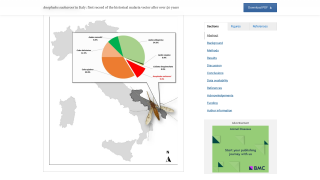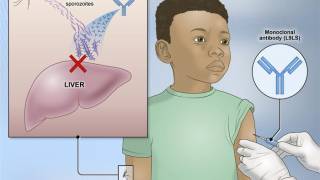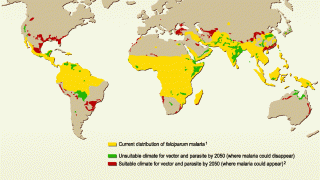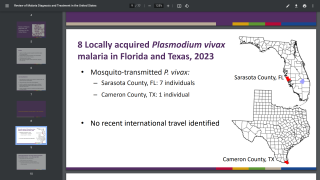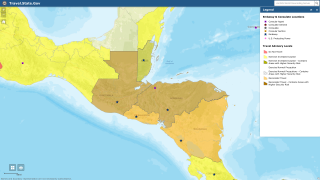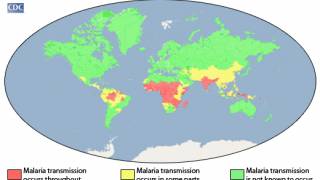Women Can Benefit From Placental Malaria Vaccination

Pregnant women who contract a malaria infection face severe health risks, as well as complications in their pregnancies.
This is because blood cells infected with malaria-causing Plasmodium falciparum parasites tend to accumulate in the placenta, negating the benefits from mother-child immunity.
To address this need, a phase 1 clinical trial published in The Lancet Infectious Diseases presented data that the PRIMVAC placental malaria vaccine candidate was found safe, immunogenic, and induced functional antibodies.
The cross-reactivity against heterologous VAR2CSA variants was limited and only observed in the higher vaccine dose group.
This small study is the first report of the safety and immunogenicity of a VAR2CSA-derived placental malaria vaccine in both women who were malaria naive and Plasmodium falciparum-exposed, but not pregnant.
These researchers concluded VAR2CSA-based placental malaria vaccines administered before the first pregnancy stand as the main anti-disease strategy to reduce malaria morbidity and mortality during pregnancy.
The advanced development of this placental malaria vaccine candidate, alone or in combination with other vaccine candidates, now requires a deeper characterization of the breadth of vaccine-induced immune responses upon natural exposure during pregnancy.
An alternate schedule of immunization, antigen dose, and combinations with other VAR2CSA-based vaccines are envisaged by these researchers to improve the cross-reactivity against heterologous VAR2CSA variants.
This study’s findings are good news since the prevention of placental malaria currently relies on key strategies that are losing efficacy due to the spread of resistance: long-lasting insecticide-treated nets and intermittent preventive treatments during pregnancy.
Over 50 million women living in endemic areas are exposed each year to the risk of developing malaria during pregnancy. Placental malaria is estimated to cause between 75,000 and 200,000 infant deaths every year.
This phase 1 clinical trial was conducted in France among 67 non-pregnant women aged between 18-35-year-old, who were malaria naïve. Among the 67 volunteers, 63 received all 3 injections.
Volunteers in phase 1A were randomly assigned to 2 groups, receiving PRIMVAC adjuvanted with either Alhydrogel or glucopyranosyl lipid adjuvant in a stable emulsion (GLA-SE).
The phase 2B trial was conducted at the clinical site of a research center in Burkina Faso among women who had been naturally exposed to P falciparum.
Volunteers in phase 1B were randomly assigned between 3 groups, receiving PRIMVAC adjuvanted with either Alhydrogel, GLA-SE, or placebo.
The primary endpoint of the trial was the proportion of participants with a grade 3 or higher adverse reaction to vaccination through 35 days.
This study reported that there were no serious adverse events related to the vaccine occurred.
Antibody titers increased with each successive vaccine dose and seroconversion was observed in all women who received the vaccination.
The PRIMVAC antibody titers peaked at a geometric mean of 11843.0 on day 63, one week after vaccination 3 in the series.
Investigators found that, compared with Alhydrogel, GLA-SE improved the PRIMVAC antibody response at a higher rate.
A year after the last vaccination, 20 (71%) of 28 women who were vaccinated with PRIMVAC adjuvanted with Alhydrogel still had anti-PRIMVAC antibodies.
Comparatively, a year after the last vaccination 26 (93%) of 28 women who were vaccinated with PRIMVAC adjuvanted with GLA-SE still had anti-PRIMVAC antibodies.
“Future follow-up of the Burkinabe women vaccinated with PRIMVAC could provide some indication as to whether or not the immune response associated with PRIMVAC vaccination could help women in accelerating clinical protection against placental malaria,” study authors concluded.
Malaria Vaccine news published by Precision Vaccinations.
Our Trust Standards: Medical Advisory Committee
- PRIMVAC vaccine adjuvanted with Alhydrogel or GLA-SE to prevent placental malaria: a first-in-human, randomised, double-blind
- Preclinical immunogenicity and safety of the cGMP-grade placental malaria vaccine PRIMVAC
- Trial to Evaluate the Safety and Immunogenicity of a Placental Malaria Vaccine Candidate (PRIMVAC ) in Healthy Adults
- Clinical development of placental malaria vaccines and immunoassays harmonization: a workshop report




